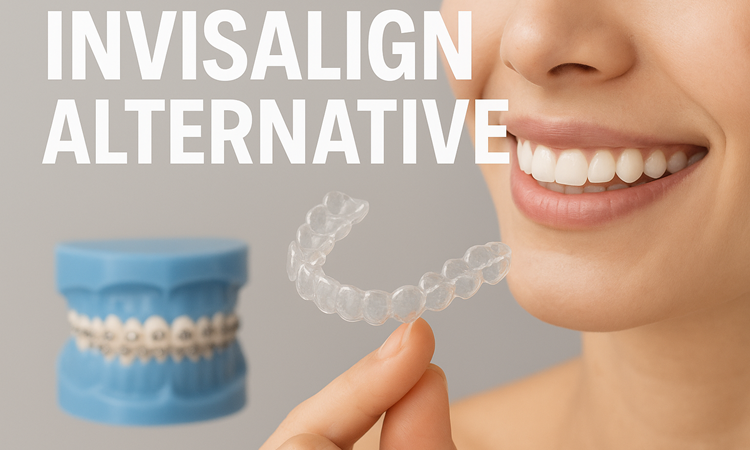The Do’s and Don’ts of Cleaning Dentures

Are you a new denture wearer? Are you wondering how you could be caring for your dentures to help them look great and last a long time?
Investing in dentures is a smart move for your appearance and overall oral health. Yet not caring for your dentures properly could lead to infections and embarrassment.
Here’s what you need to know about cleaning dentures the right way.
Do Remove Your Dentures Every Night
Before going to bed, you’ll need to remove and soak your dentures. Failing to do so could create a breeding ground for oral bacteria and fungi. You could also speed up bone loss because of the added pressure.
Not removing your dentures will deprive your gum tissues of some well-deserved rest. Make sure you take them out every night for a break.
Don’t Soak Them In Mouthwash
Since it’s sitting on your sink anyway, it can be tempting to think that it’s okay to soak your dentures in mouthwash. Yet mouthwash contains alcohol that can dry out the base of your dentures and lead to cracks, even if you have the best dentures available.
Similarly, bleach or other household chemicals can weaken your dentures and whiten their color. When cleaning your dentures, it’s important to use an approved denture cleaner.
Do Create An Evening Routine For Caring For Your Dentures
Before you clean your dentures at night, fill your bathroom sink up with warm water. Then take a towel and place it along the edge of the sink to make sure your dentures won’t fall or break. This could be a problem especially if you have tile or stone floors.
Next, it’s important to gargle with warm water, as this will help loosen your dental adhesive seal. Remove your bottom denture first, and then your top denture.
It’s important to rinse your dentures under running water to remove any food particles. You can then brush them with a regular soft brush or denture toothbrush. You can purchase them at any drugstore.
You will need to get rid of any adhesive residue in your mouth. Gargle with warm salt water, and then use a clean washcloth to wipe along your gums. After that, you can rinse out your mouth with warm water.
You can then clean your gums with a soft toothbrush. If you have a partial denture, brush your teeth. You can also use an oral care rinse for extra freshness.
You can then soak your dentures in a denture cleaning solution or water overnight. You’ll need to use an airtight container, as failing to soak your dentures could lead to them losing their shape.
In the morning, you’ll need to rinse your dentures thoroughly before placing them back in your mouth.
Don’t Take Large Bites Of Food
It may take a bit of time to get used to eating with your dentures. You won’t want to take big bites, use tugging motions, or bite down hard on items. This can lead to chipping and other types of damage.
Your diet is going to change a little when you get dentures. Foods like popcorn, steak, and nuts can really damage them. You’ll also want to avoid sticky candy and other foods with soft pieces.
If you want your dentures to last as long as possible, you’ll need your diet to reflect your seriousness about keeping them strong.
Do Rinse Your Dentures Every Time You Eat
You don’t need to give your dentures a thorough cleaning every time you have a meal, but you should rinse them after eating.
The sugars and carbs in food can break down enamel. A quick rinse can also get rid of harmful chemicals, such as those found in sodas.
Don’t Neglect Careful Brushing
Even though your dentures are a bit different than natural teeth, you’ll need to clean them thoroughly to help them last. Make sure you use your special brush to carefully clean between teeth. There are also special kinds of toothpaste made just for dentures.
Do Get Help If Your Dentures Don’t Fit Right
Ill-fitting dentures can lead to sores and pain. You will also have an increased risk of infection.
If your dentures keep slipping or feel too tight, make sure you contact your dentist and get an adjustment as soon as possible.
Don’t Use A Denture Cleaner In Your Mouth
Remember that, while it’s important to clean your mouth, you shouldn’t rinse it out with denture cleaner. This can lead to burning of the mouth, throat, and esophagus. It can also cause inflammation.
Some individuals have allergic reactions to denture cleaners. When your rinse out your mouth as a denture wearer, use some mild mouthwash after your dentures are removed. Or you could use some saltwater.
Rinsing can clear your mouth of debris and eliminate bad breath, but i’s important to use the right substance.
Do Get Regular Dental Check-Ups
Getting dentures doesn’t mean you can stop seeing your dentist for regular cleanings and check-ups. Make sure you keep your bi-annual visits or go more often if your dentist asks you to.
You can also bring your dentures along for your cleaning. The dentist can examine them for damage and clean them professionally.
Tips For Cleaning Dentures
Cleaning dentures is about more than just getting them fresh and clean. They will help them to stay intact and keep them working beautifully for years to come.
Don’t stop getting smart about your health and lifestyle now. For more great advice, read our blog today.





